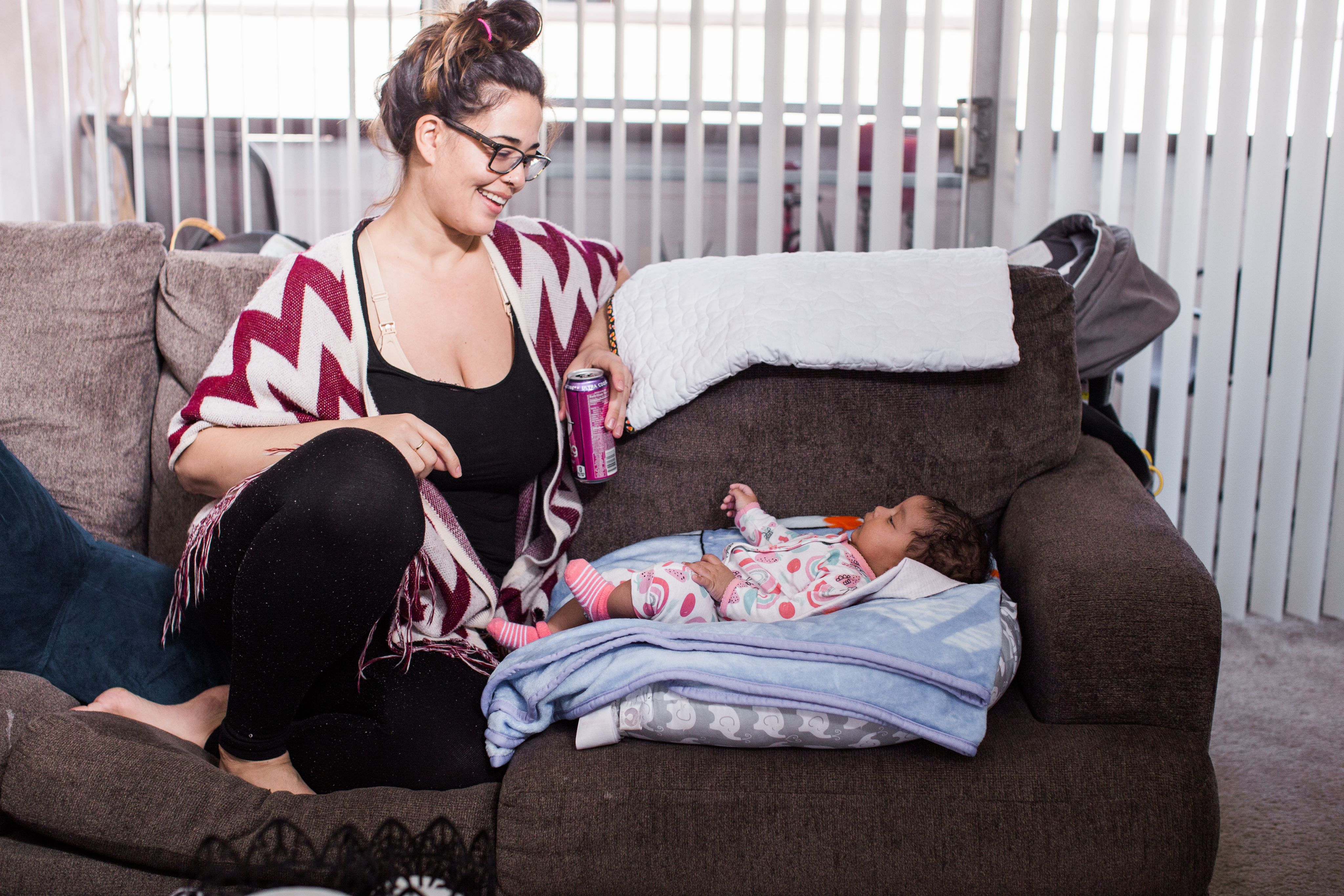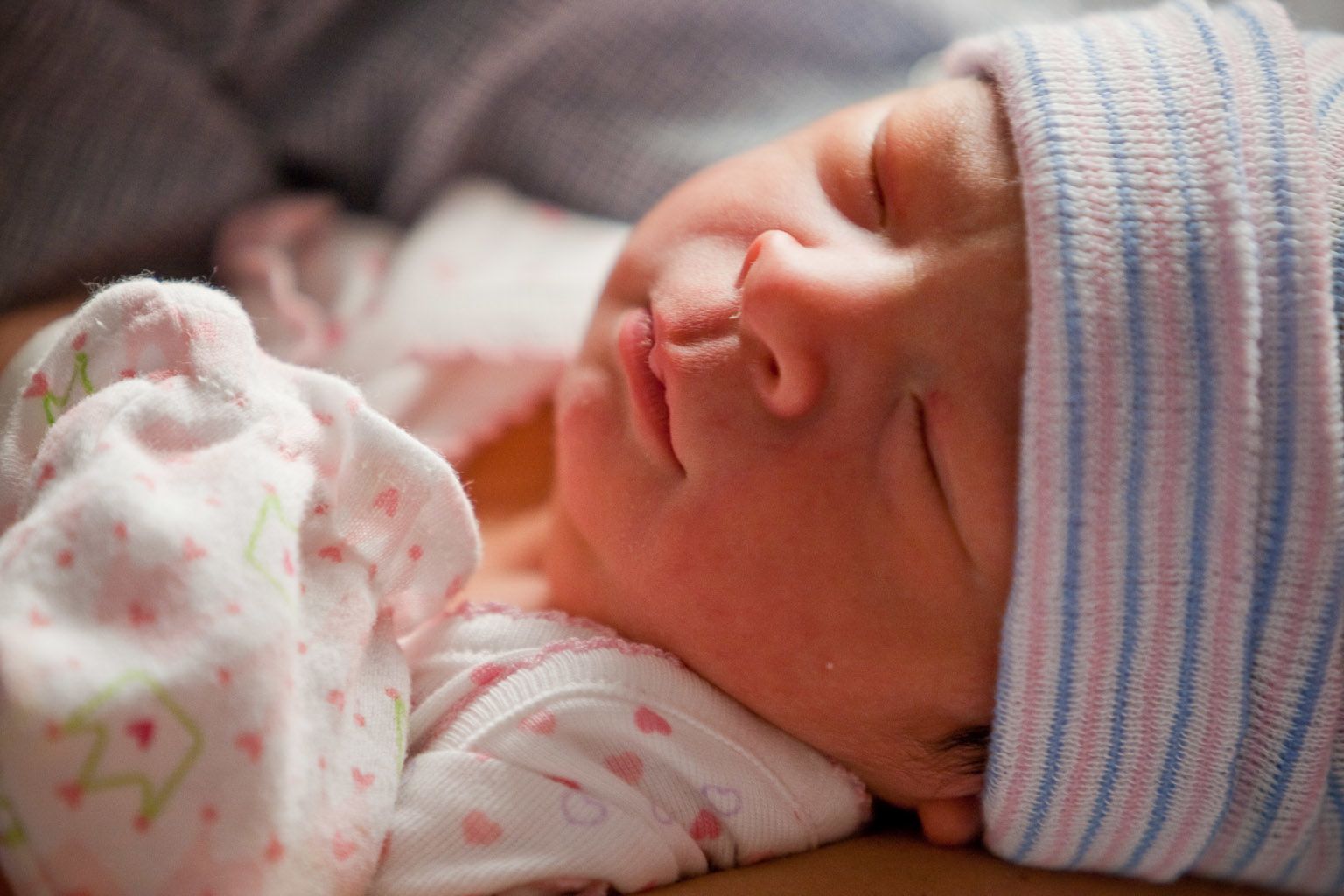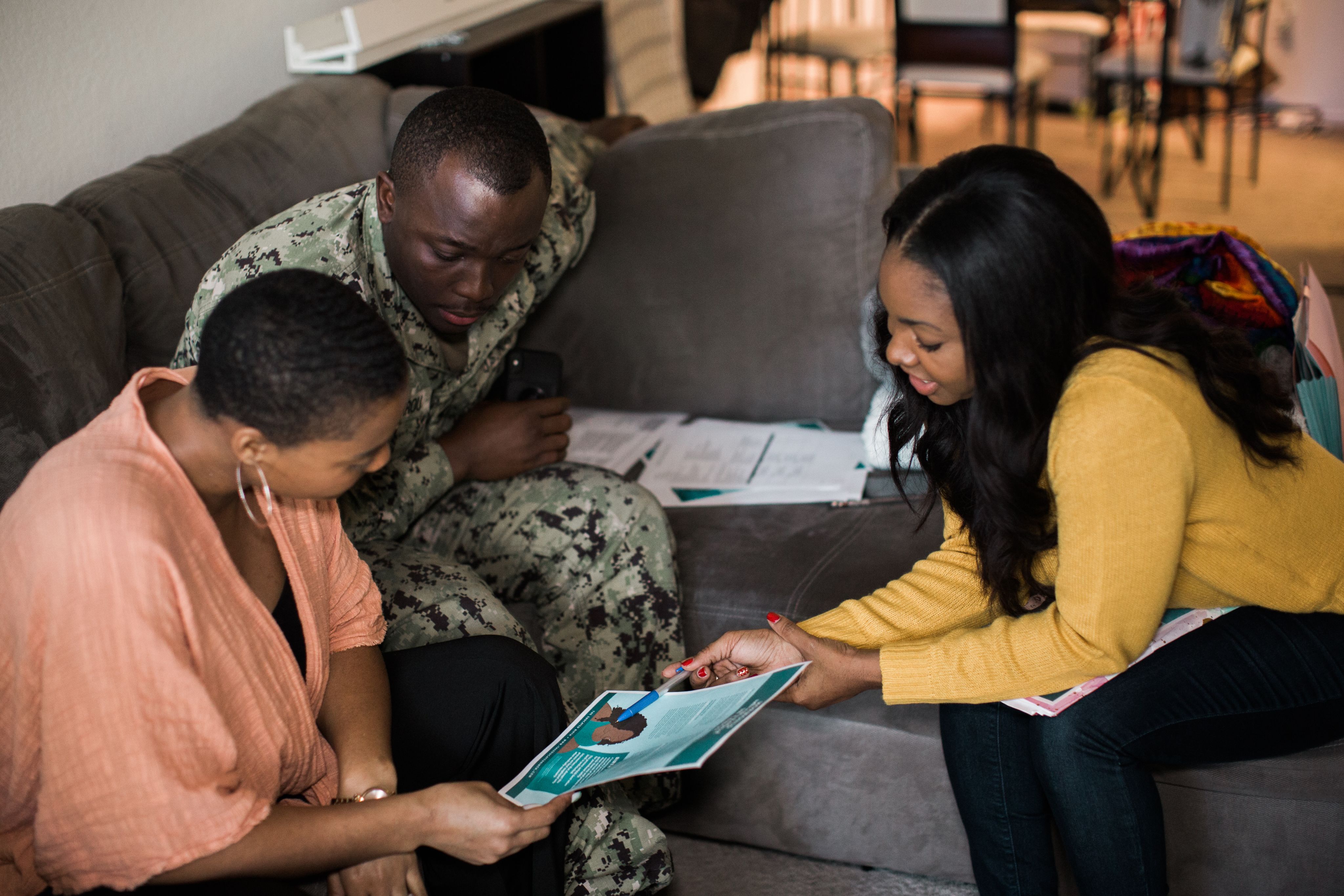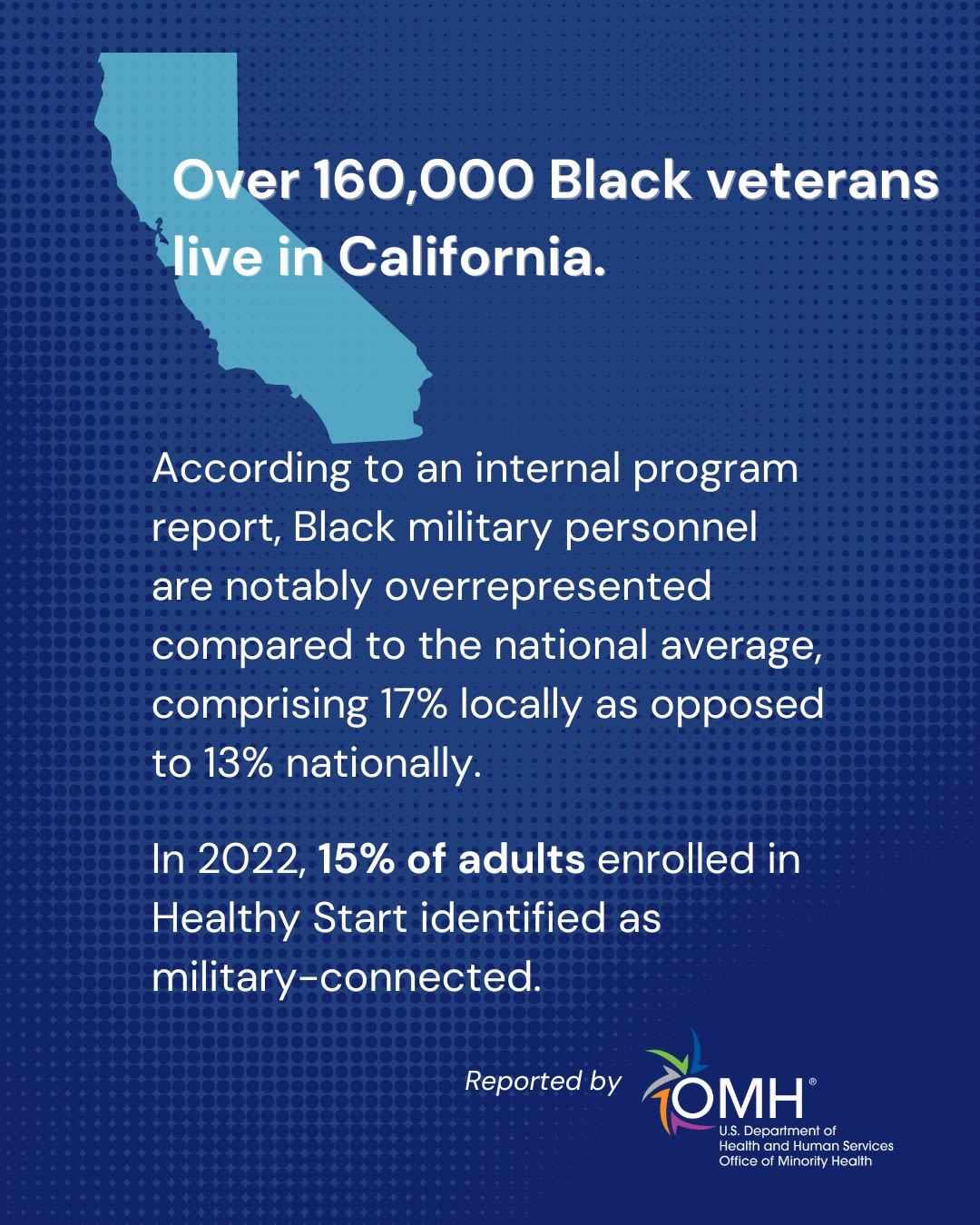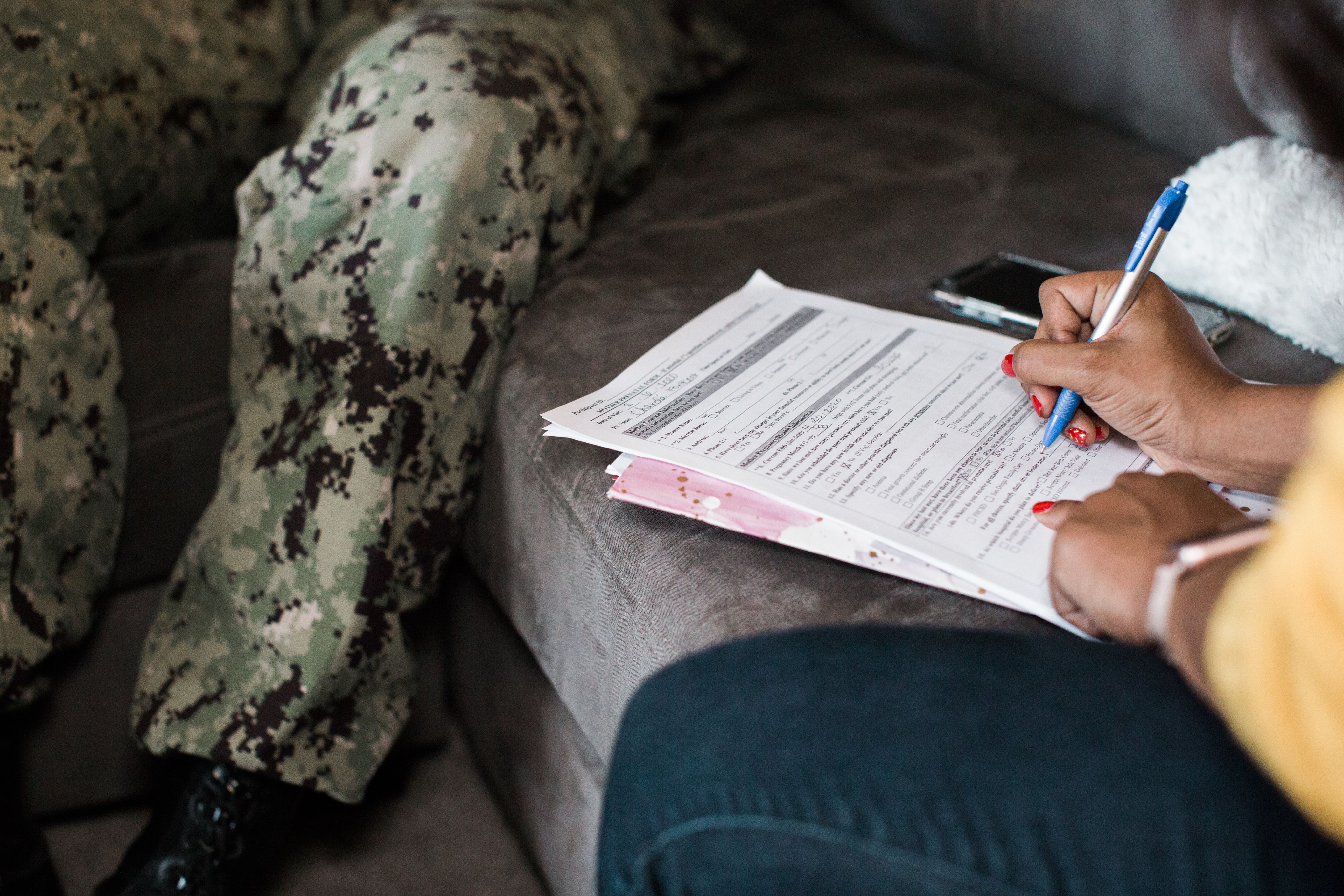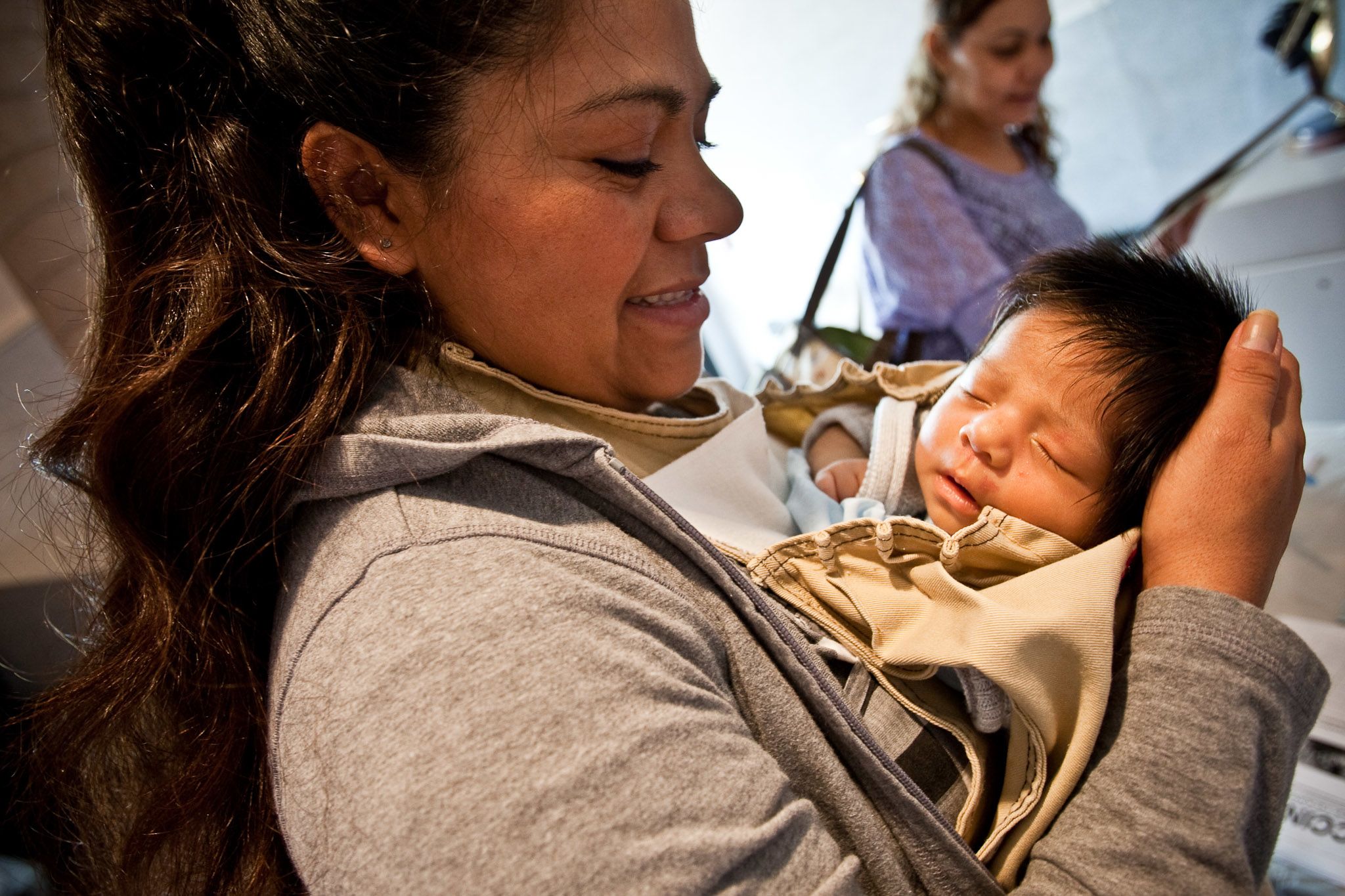A Labor of Love
Advancing Maternal Health Equity for Black and Immigrant Families in Southern California
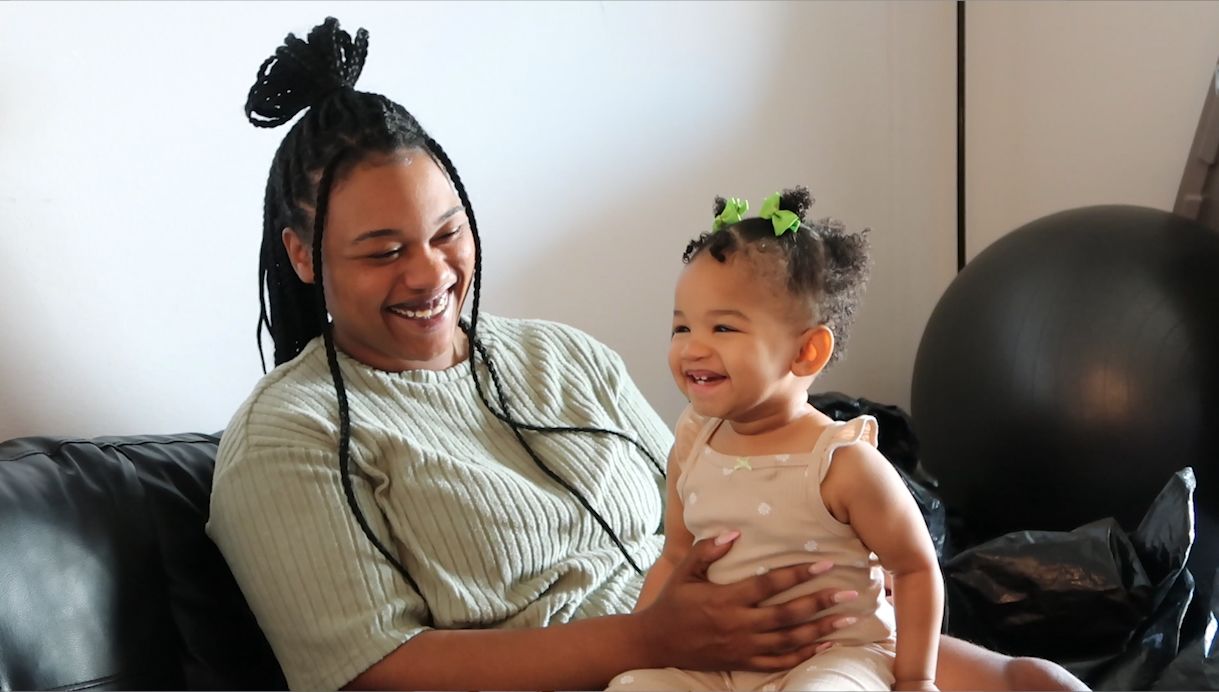
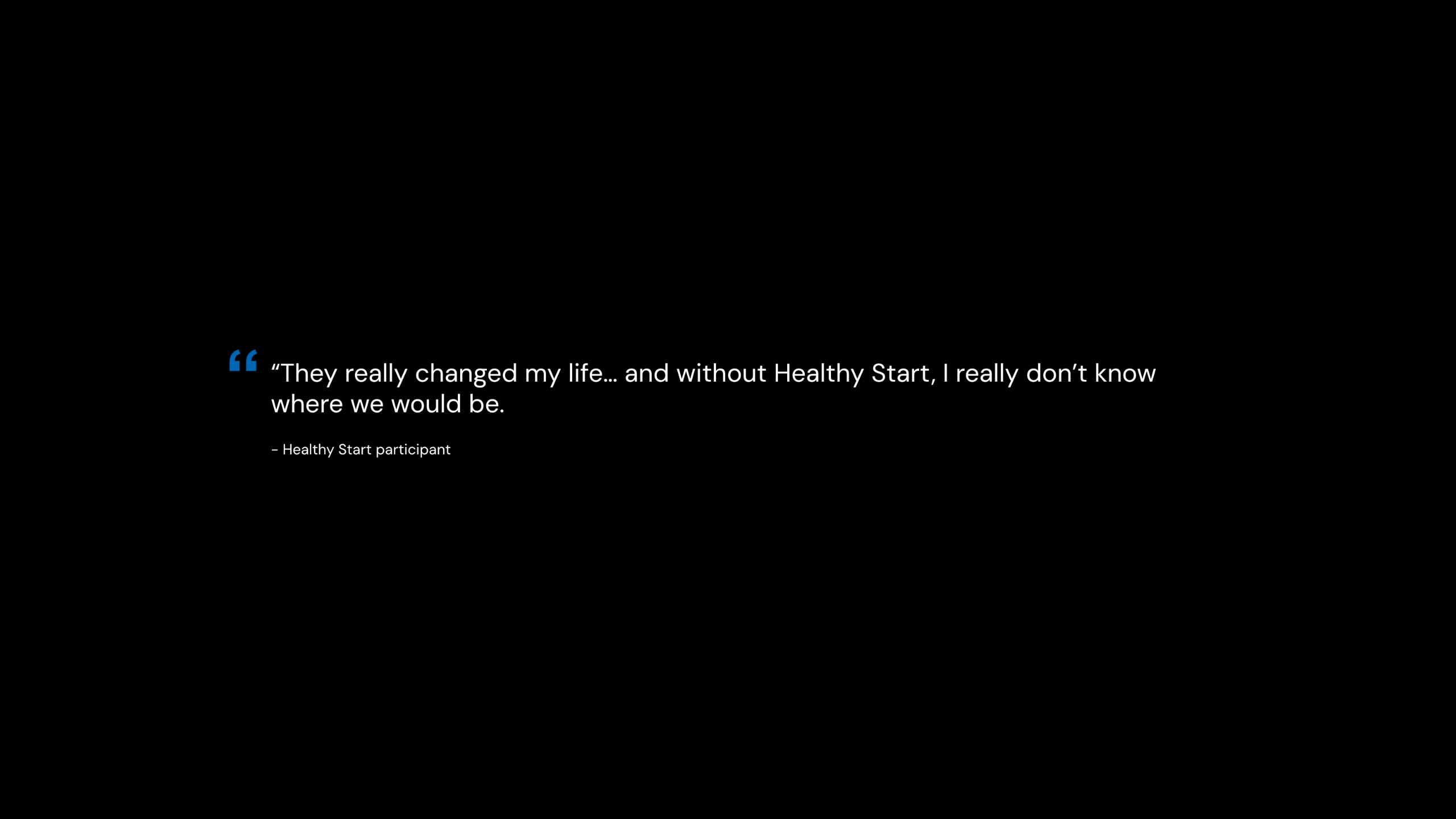
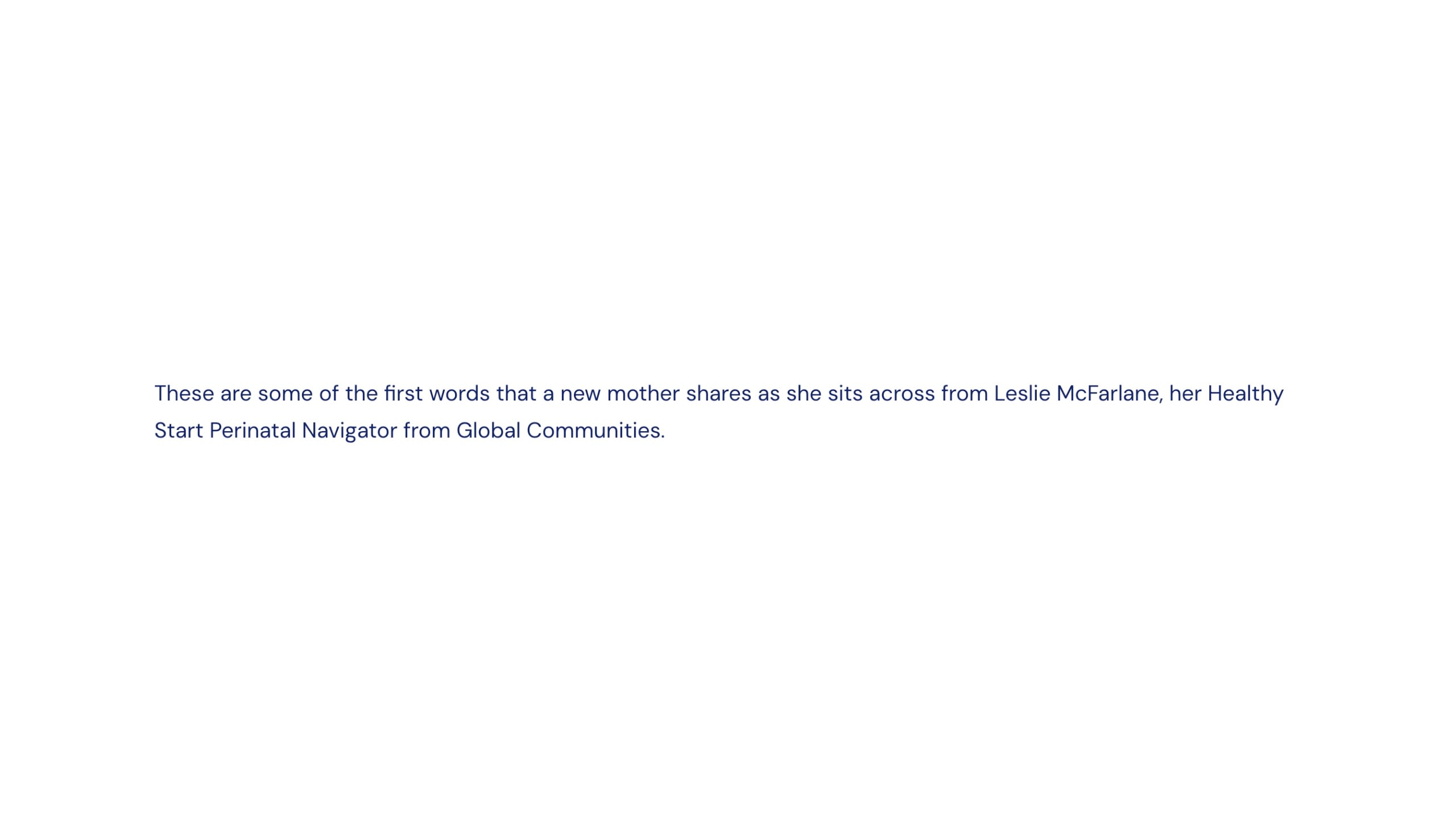
This kind of exchange is not uncommon for the relationships cultivated by McFarlane and the six women who work alongside her. As trained maternal and child health educators, they guide and support new and expectant families in San Diego County through the uniquely challenging and personal experience of pregnancy and postpartum.
To them, this is more than a job; it’s a quest to sustain life.
Many of their program participants — primarily Black women — are nearly three times more likely than white women to die from pregnancy-related complications.
The National Institutes of Health highlights that adverse maternal health outcomes for Black women are significantly influenced by systemic racism within the health care system. Disturbingly, over 80% of pregnancy-related deaths are preventable. Factors such as implicit bias, a widespread lack of understanding of health impacts on Black individuals, disparities in care standards, and toxic stress make navigating the health care system a life-threatening ordeal for many pregnant Black women. Such inequities leave many traumatized and distrustful of health care institutions. In response to these alarming statistics and the urgent need for health care policy reform, Global Communities designed its Healthy Start program to address gaps in care and support.
History of Healthy Start
Founded in 2007, Global Communities’ Healthy Start program (“Healthy Start”) aims to improve health outcomes before, during and after pregnancy and reduce disparities in infant death and adverse perinatal outcomes. Since its inception, the program has provided maternal and child health services and education to over 6,000 mothers, fathers, babies and same-sex partners.
Photo by Sophia Ahmann/Global Communities
Photo by Sophia Ahmann/Global Communities
Funded by the U.S. Health Resources and Services Administration, Healthy Start employs a client-centered approach to deliver lifesaving care such as prenatal and childbirth education, postpartum assistance and breastfeeding support, prioritizing Black families and immigrant communities in San Diego County. Participants also have access to midwifery and doula services, among other resources.
While these services may seem basic to some, they are transformative for the communities served by the program. With the support of Perinatal Navigators, the program has achieved significant milestones in advancing the health and well-being of families in San Diego.
In 2023 alone, the dedicated team completed over 2,600 home and telehealth visits, a meticulous process where Perinatal Navigators ensure participants have access to essential education, resources and tools vital for their newborns' well-being.
That consistency and that long-term relationship form the basis of the comfort and the trust that then allow us to achieve better health outcomes.
Lisa Bain, Senior Director of Global Communities’ U.S. Programs, describes the unique bond between Perinatal Navigators and participants that sets Healthy Start apart in San Diego.
"In most health care settings, a person goes to a medical office and will be seen by whoever is available. In our model, we go to the homes of our families, and the same person provides support from pregnancy well into postpartum," Bain says. "That consistency and that long-term relationship form the basis of the comfort and the trust that then allow us to achieve better health outcomes."
Healthy Start in Numbers
- Completed more than 12,500 service visits
- Distributed 375 Pack 'n Plays or car seats to ensure infant safety
- Connected 250+ participants with doula support
- Delivered 940 clinical midwifery care visits
* All figures represents 5-year project cycle from 2019-2024.
Who are the Healthy Start Perinatal Navigators?
Perinatal Navigators play a crucial role in disseminating maternal and child health information and distributing essential resources to community members. More importantly, they offer invaluable emotional and mental health support to their participants. These trained health educators work with families from pregnancy until the child reaches 18 months, conducting home visits that are a cornerstone of the program.
During these personalized visits, participants can ask questions and receive tailored information about their health and their child's well-being, while also having time to bond with their Perinatal Navigator. This fosters a level of trust that ensures expert knowledge is delivered with exceptional care and dedication.
Perinatal Navigator Mikayla Charles exemplifies this dedication by working full-time and simultaneously earning a degree in Human Development Science from the University of California, San Diego.
I'm both a student and a Navigator. I worked at Healthy Start for 2.5 years before beginning my studies. My major has enhanced my work, because I've learned how various systems influence our development and interactions with parents. I convey this knowledge to the families I serve in an understandable way.
Charles leverages her understanding of human development theories to advocate effectively for her families. She explains every aspect of a child's development at each stage, ensuring no detail is overlooked and thoroughly addressing all questions.
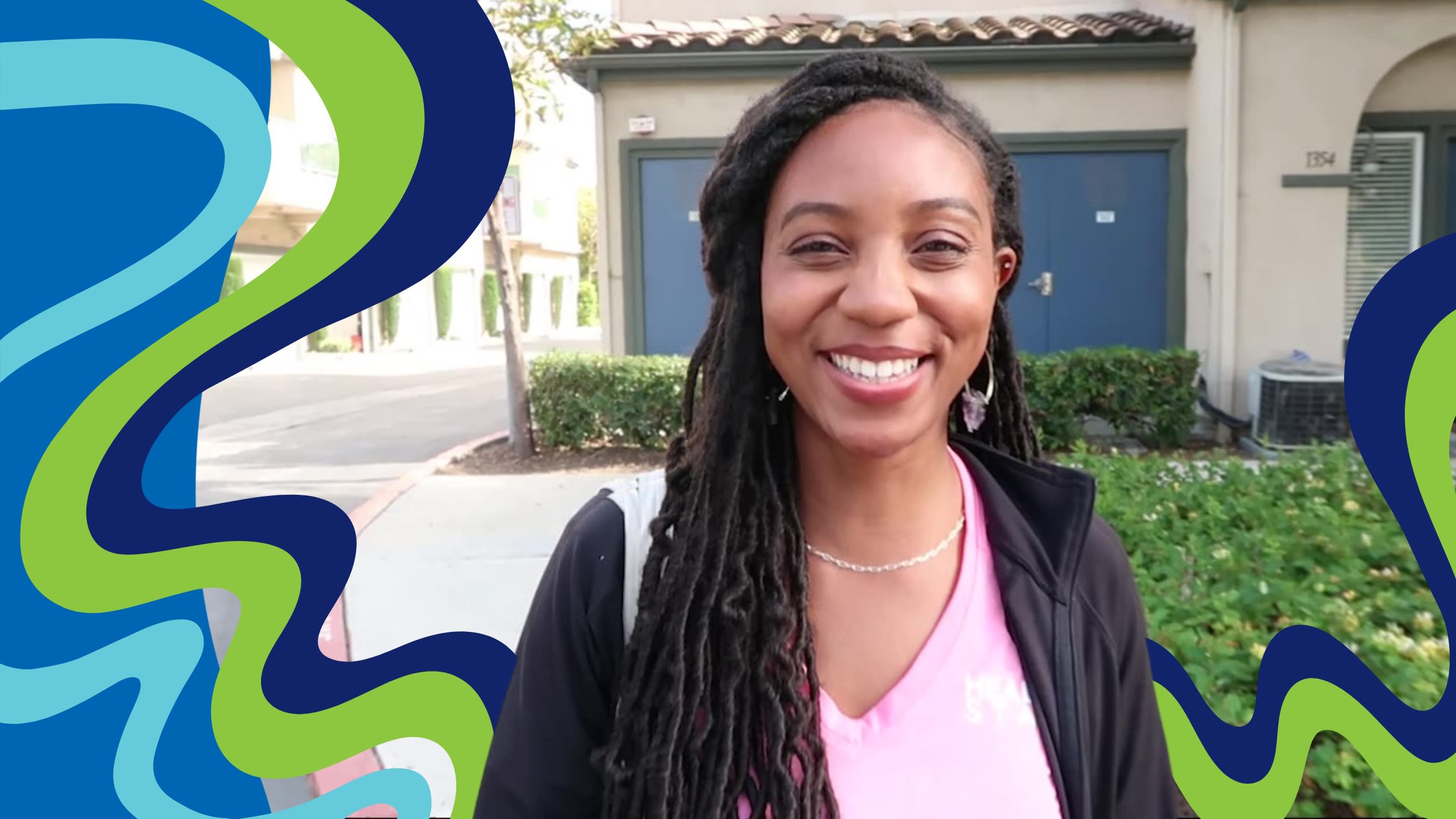
Because home visits are a highly personalized aspect of the Healthy Start experience, they vary significantly based on the child's age, the families' circumstances and the Perinatal Navigator's approach.
For example, Senior Perinatal Navigator Daniella Lesch tailors her visits to go beyond health topics, including discussion about overall family concerns. One of her participants, a Haitian woman who arrived in the United States in 2021, has faced numerous challenges adjusting to life in a new country.
We talk about how the family is doing and feeling, and we also focus on the baby's health.
This balanced approach is crucial for many Healthy Start participants, approximately 50% of whom are refugees and asylum seekers from countries such as Somalia, Haiti and Afghanistan. Home visits often address both the healthy development of the baby and the mother's recovery, as well as concerns about accessing services and resources for a safe and comfortable transition into living in a new country.
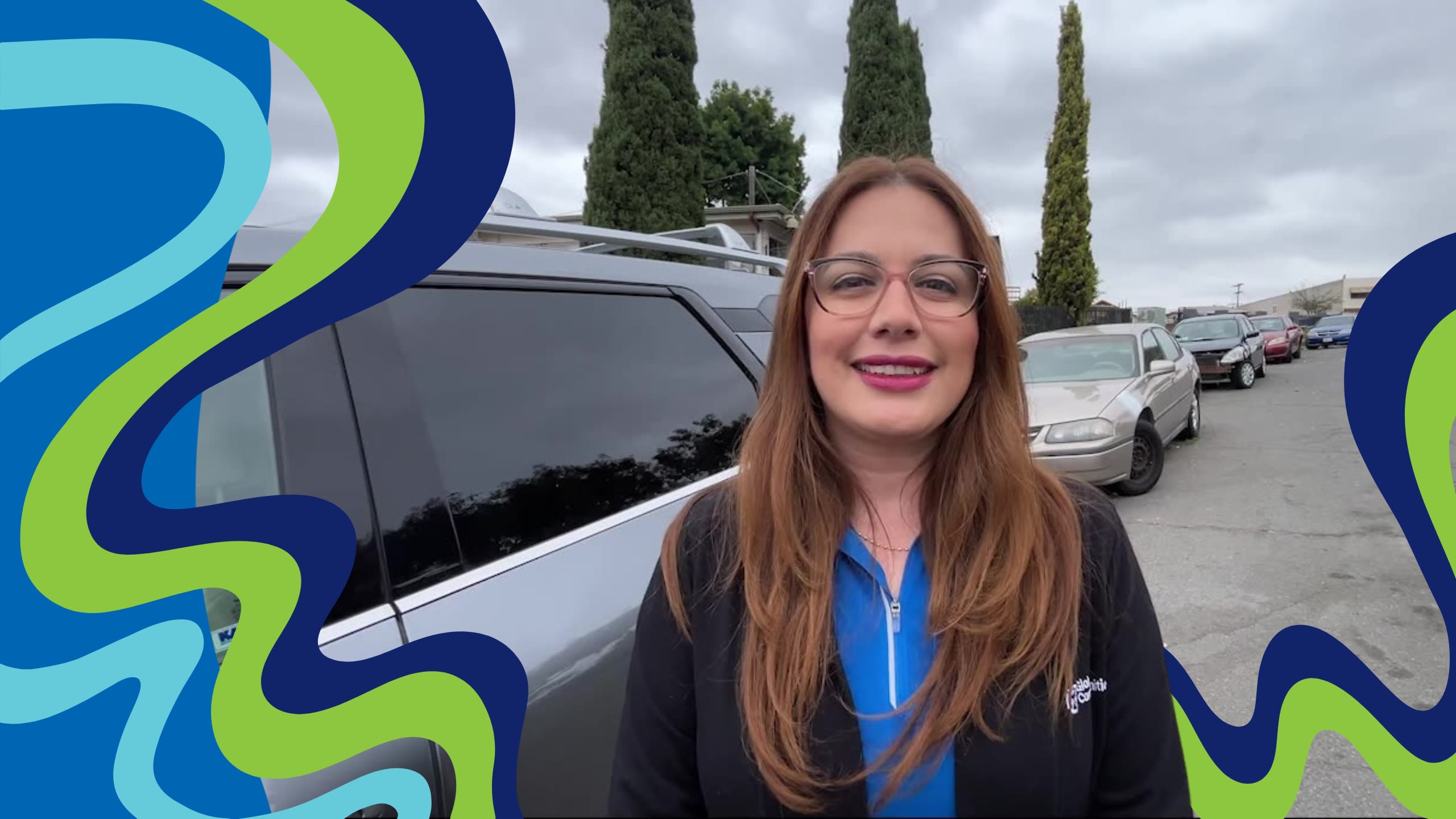
Trust between Perinatal Navigators and participants is essential due to the sensitive topics discussed during these visits.
Perinatal Navigators like Jamat Suryan bring more than just maternal health expertise; they often connect participants with essential resources such as food, rental assistance and mental health support. To better assist her participants, many of whom have endured brutal civil wars and governmental instability, Suryan has also taken mental health coaching classes. This is just one example of how Global Communities’ Healthy Start team goes above and beyond to expand their knowledge and find resources and programs that help their participants lead fulfilling lives.
Some of my participants do not even have enough income to purchase any furniture, but they still invite me into their homes and serve me tea. They are resilient. Anything I can do to make their lives even 1% easier, I do gladly.
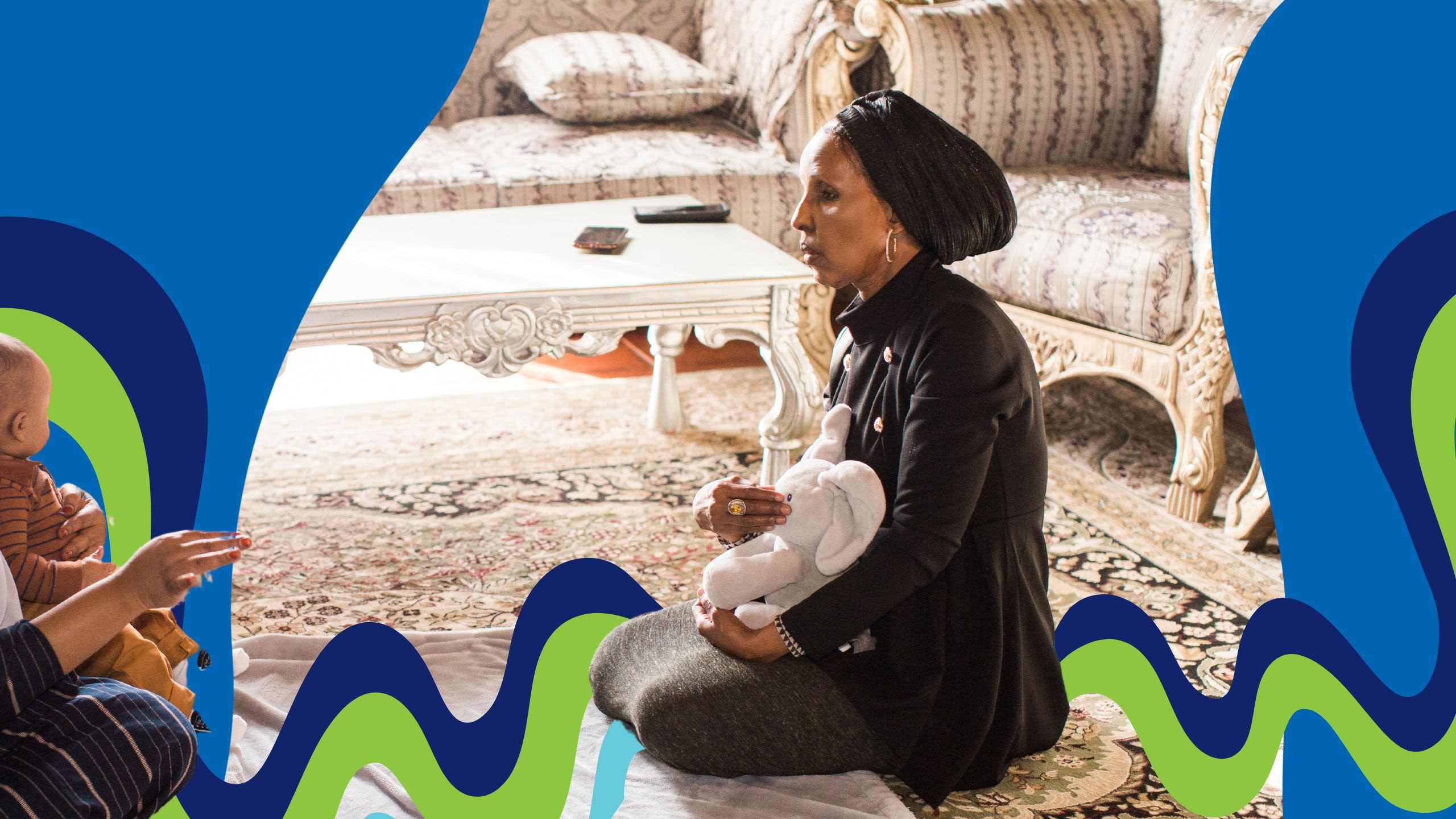
Which Communities Are Served by the Healthy Start Program?
Understanding the unique tapestry of the San Diego community is crucial to appreciating the specific role played by Global Communities’ Healthy Start program. San Diego County boasts a vibrant refugee population from around the globe and serves as a major military hub for the United States. This combination requires Perinatal Navigators to recognize and cater to the distinct experiences of these diverse communities. Many program participants either have a partner in the military or are military personnel themselves, necessitating a deep understanding of the unique needs of Black military families.
Photo by Sophia Ahmann/Global Communities
Photo by Sophia Ahmann/Global Communities
We didn't initially plan to serve the military population, but they began seeking our services, and we listened carefully to understand their unique needs. This prompted us to specialize and tailor our approach accordingly.
Charles, a Perinatal Navigator who works with military families, highlights the importance of staying abreast of resources specifically available to this demographic to serve them more effectively. For example, she can connect them with a military-focused doula service or lean into conversations about deployment and being away from family.
Photo by Sophia Ahmann/Global Communities
Photo by Sophia Ahmann/Global Communities
Meanwhile, Perinatal Navigators working with participants who are refugees and asylum seekers have identified the need for free legal services, as many clients juggle complex immigration paperwork and hearings while pregnant or postpartum.
To better address structural issues like this, Healthy Start collaborates with a variety of entities and programs outside of Global Communities to offer resources beyond what Perinatal Navigators can provide directly. These partnerships introduce participants to a network of community-based organizations dedicated to uplifting immigrant and minority experiences in San Diego.
Photo by Jeffrey Brown/Global Communities
Photo by Jeffrey Brown/Global Communities
For example, Healthy Start directly contracts with midwives, lactation clinicians and mental health providers as a first step to ensuring the full range of family needs are met.
Given the variety of challenges many participants face, Perinatal Navigators must be well-connected within the community to ably guide them through complex resource systems that can improve their lives and those of their children.
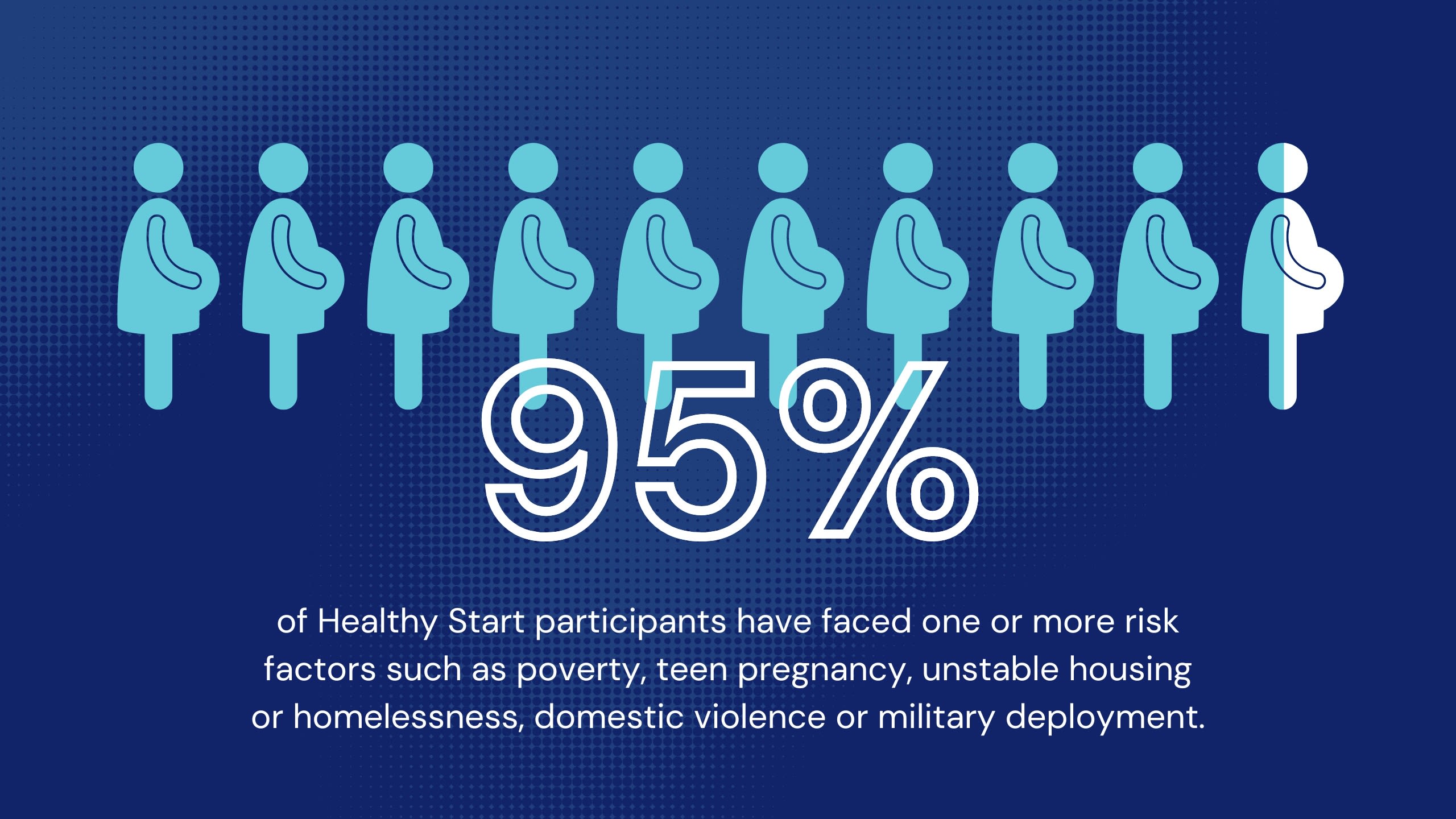
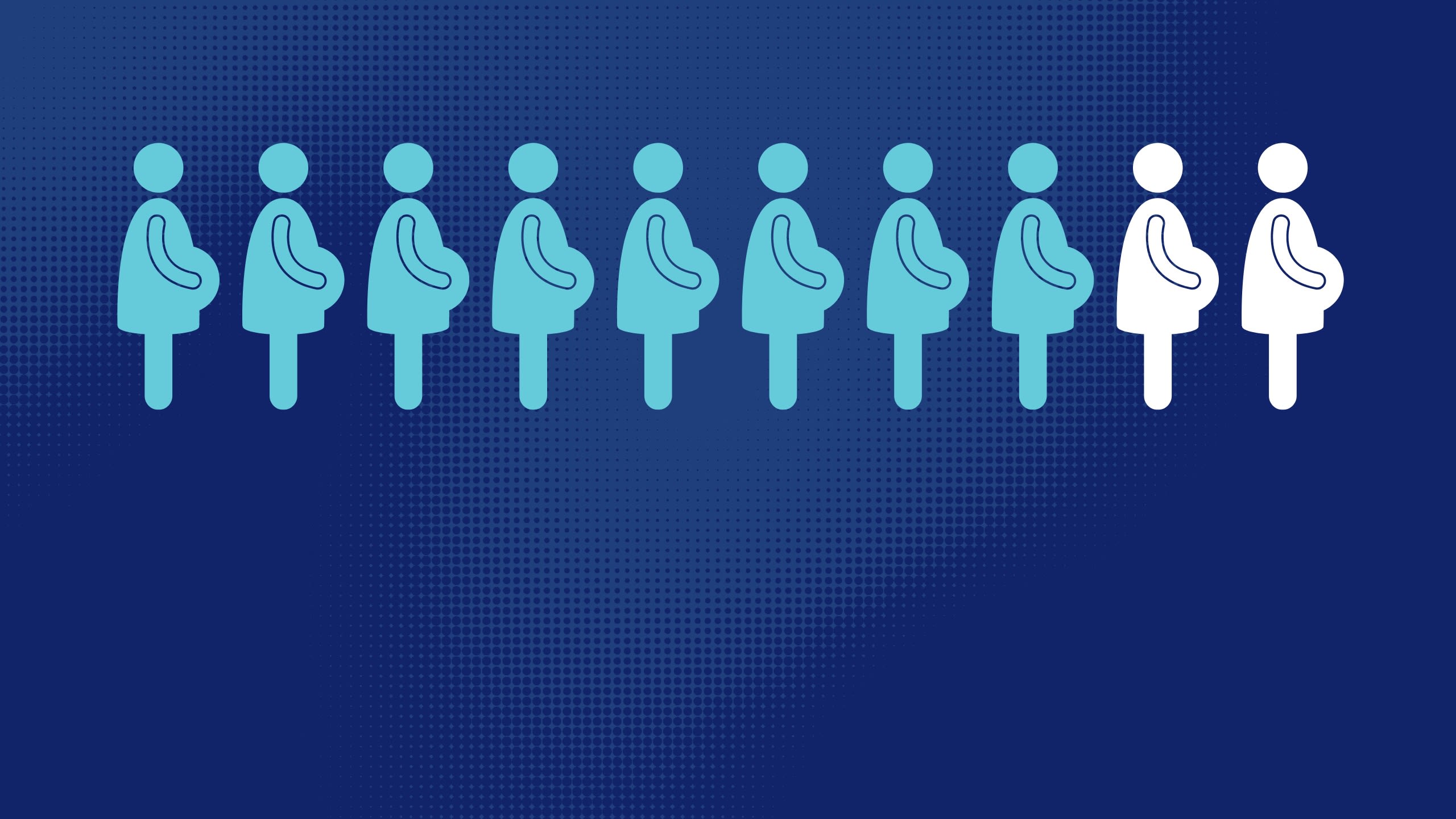
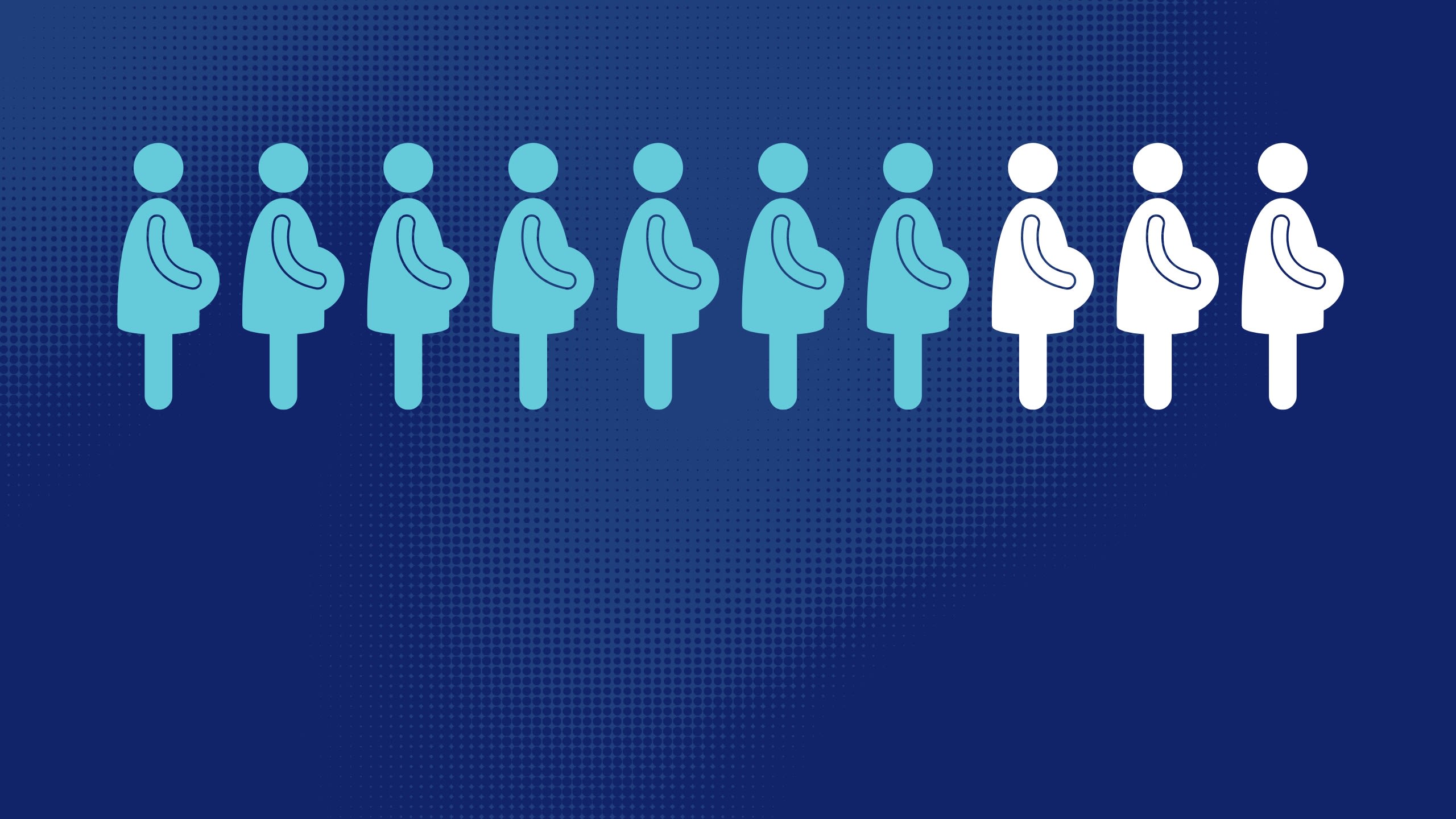
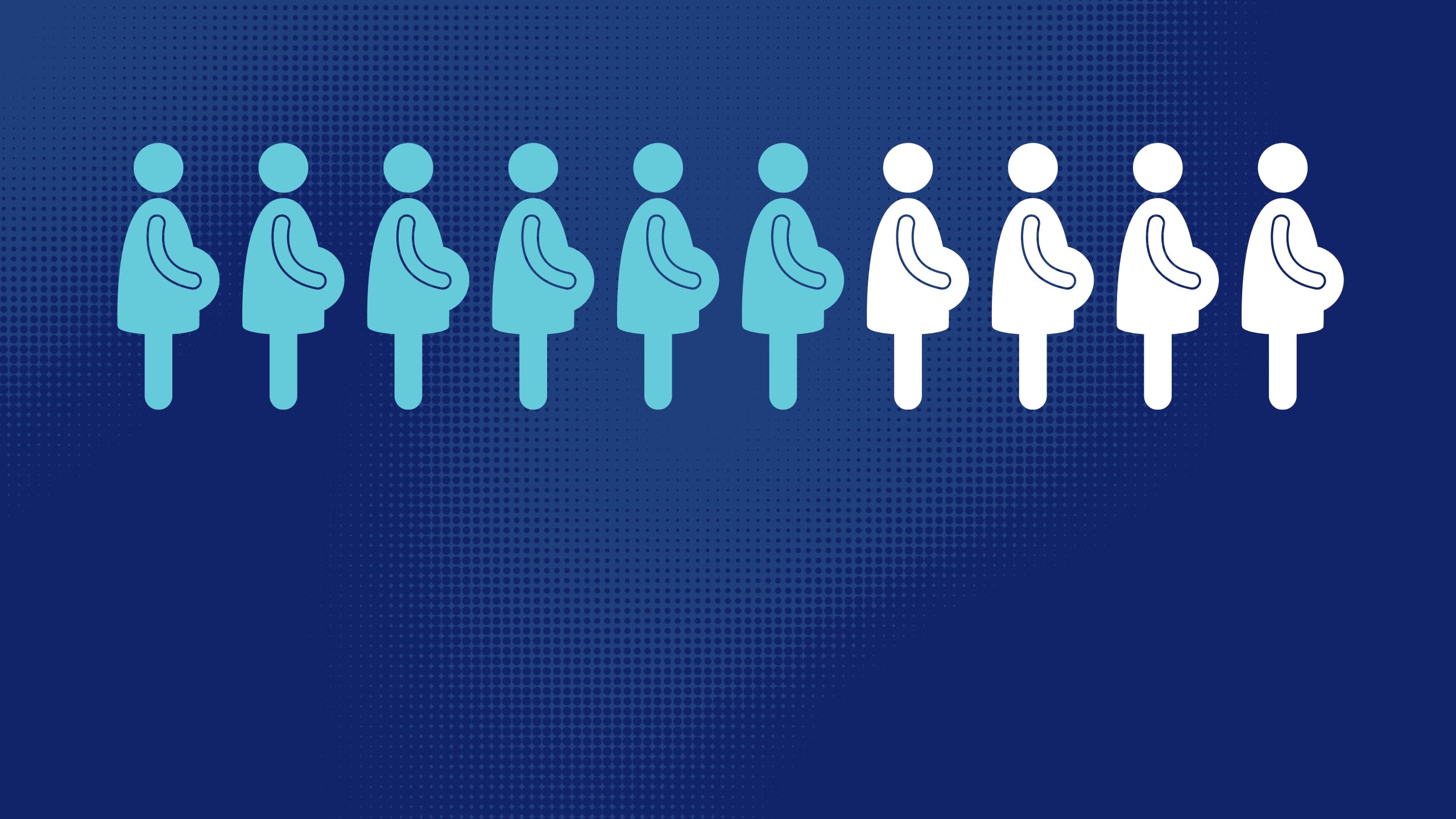
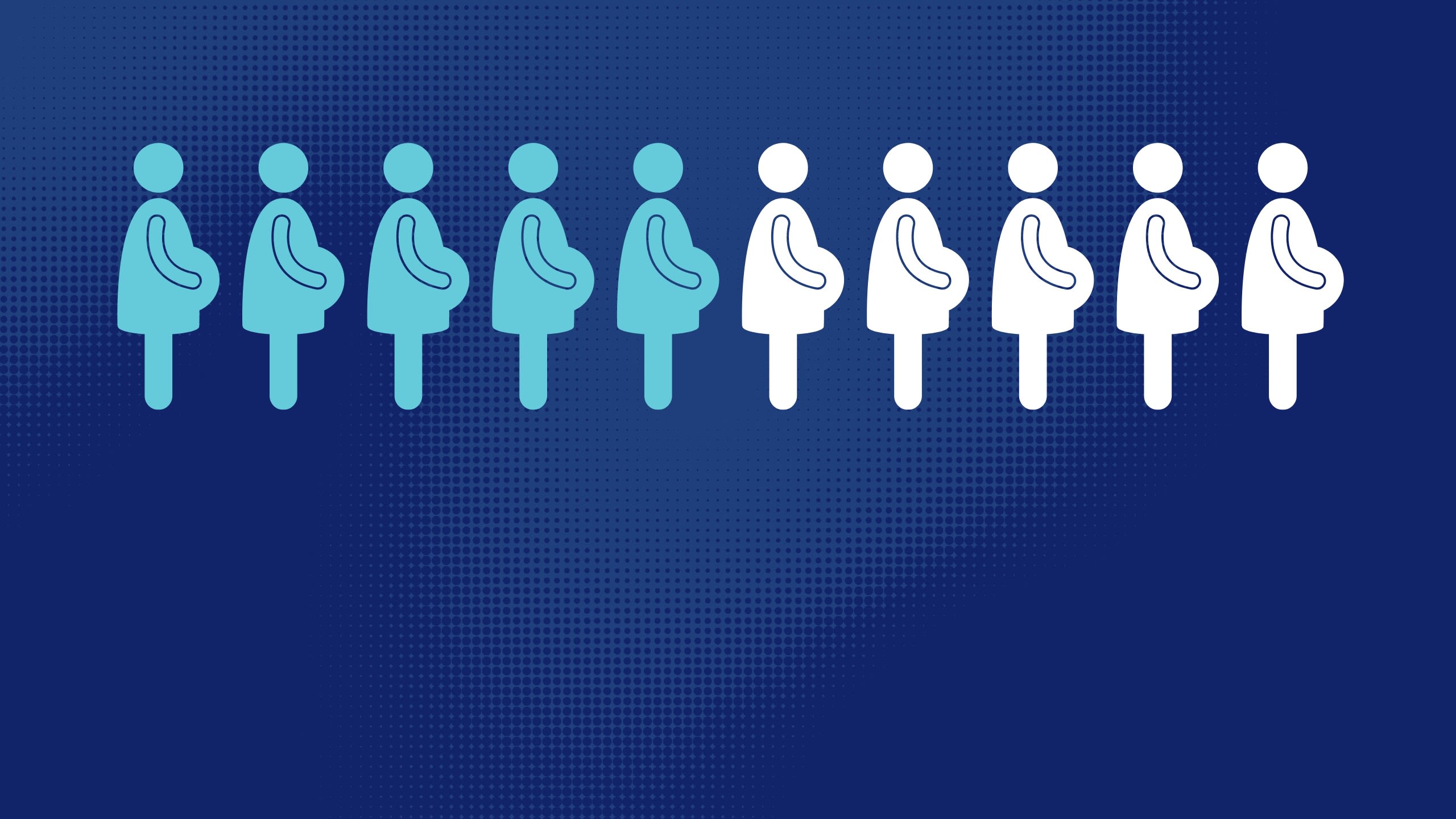
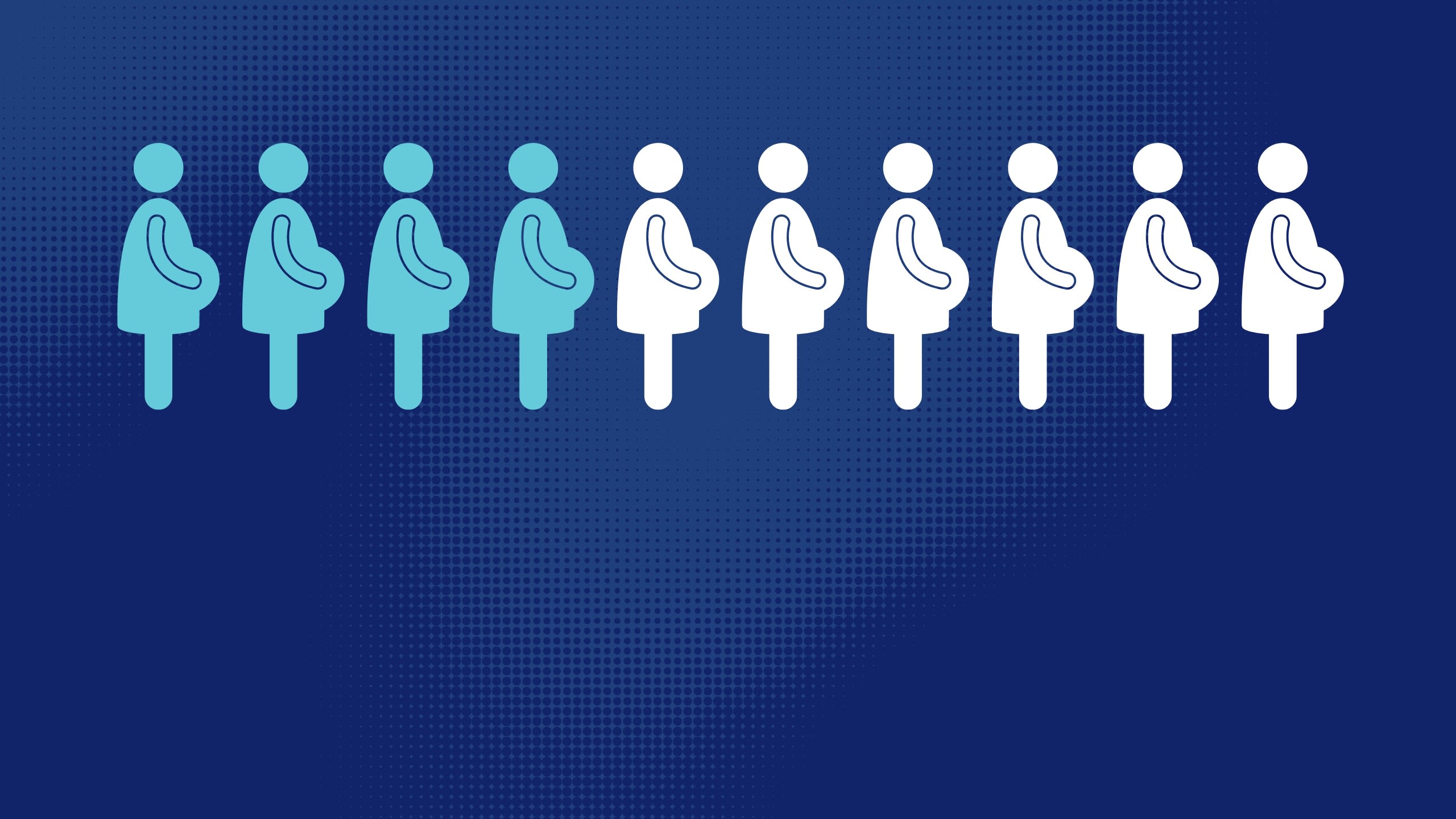
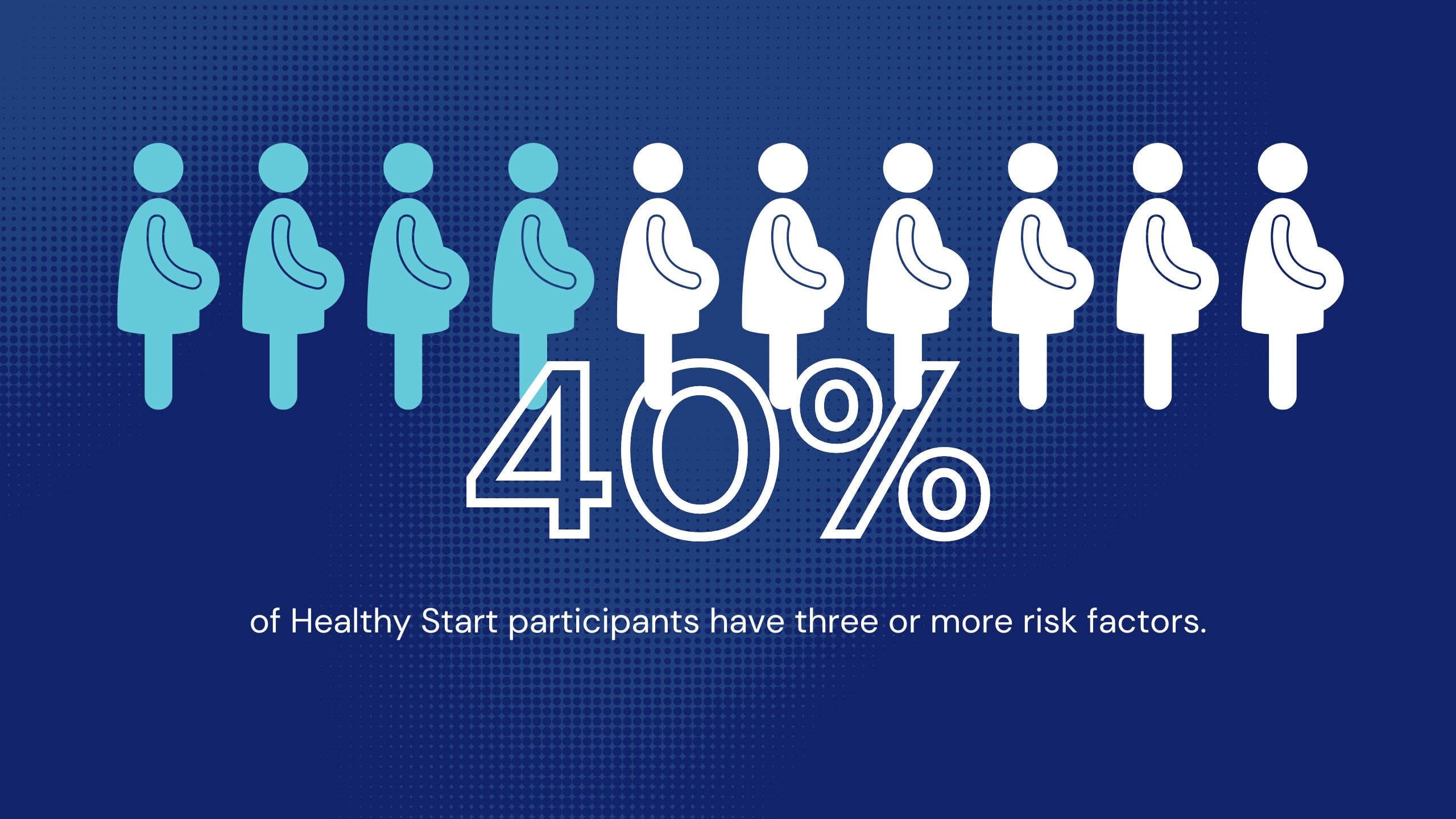
Perinatal Navigators as Community Ambassadors
One of the most critical factors in the success of Global Communities’ Healthy Start program is that staff members come from the very communities they serve — sharing culture, language, identity and religion. This common ground fosters a deeper level of trust and connection, allowing participants to value the advice, resources and recommendations provided by their Perinatal Navigators.
Additionally, Healthy Start invests significantly in training these maternal health workers, which creates a pipeline from high-needs communities to health care roles within those same communities. Since 2020, Healthy Start has trained 121 women from underserved and underrepresented communities as lactation educators, childbirth educators and/or doulas, including the very first Haitian Creole and Somali-speaking doulas in San Diego County.
As language barriers can often impede care, the program has made extensive efforts to provide translation services for participants who are not proficient in English. To date, the program employs staff members who speak Spanish, Somali, Arabic, Haitian Creole and Farsi/Dari, with 58% of health workers in the program being bilingual. This linguistic diversity ensures participants can communicate in their preferred language, fostering a sense of safety and understanding.
Perinatal Navigators are often integral parts of the communities they serve, frequenting many of the same establishments as their participants such as community centers, places of worship and ethnic grocery stores.
When my participants see me around the neighborhood, I feel like they trust me more because they can see I am from where they are from.
This can be a particularly important sentiment given the sensitive nature of maternal experiences for many participants. Beyond shared identity, most program staff are also mothers who have navigated the U.S. maternal health care system themselves, allowing them to offer firsthand accounts.
During a recent home visit, one of McFarlane’s participants asked, “I can still see you after I’m no longer enrolled in the program, right?” Her earnest inquiry was evidence that these sessions are more than just health checks.
During a recent home visit, one of McFarlane’s participants asked, “I can still see you after I’m no longer enrolled in the program, right?” Her earnest inquiry was evidence that these sessions are more than just health checks.
Shared religious experiences are also crucial in the Healthy Start program. Serving many refugees and immigrants from Muslim-majority countries, it is vital that Perinatal Navigators understand the specific religious concerns of their participants. This understanding can make the difference between a successful health care visit or a traumatic encounter. Given the history of Islamophobia in the United States, many Muslims distrust American institutions, including health care.
For example, some Muslim program participants prefer female doctors for hospital visits, and Perinatal Navigators advocate to ensure preferences like this are articulated and respected. This level of support provides participants with peace of mind, knowing that someone who understands their religious concerns is supporting them. Perinatal Navigators help bridge cultural understanding between health care providers and participants.
Some Perinatal Navigators, like Suryan, have even faced the dual challenge of navigating this system while dealing with the devastating effects of civil war in their home countries.
Suryan was pregnant with her first child when she fled the civil war in Somalia in 1990, arranging safe escape for family members while also building a new life in the United States. She shares her experience to encourage participants, showing them that there is light at the end of the tunnel. Many participants, including those from Afghanistan, Sudan, Iraq and Haiti, have experienced the life-altering effects of instability in their home countries and rely on Healthy Start for more than just resources; they seek a lifeline for support and connection in a new country.
On the whole, Global Communities’ Healthy Start program works to ensure participants’ cultural and religious needs are met with personalized recommendations and resources deeply rooted in the traditions and beliefs the Perinatal Navigators themselves hold dear.
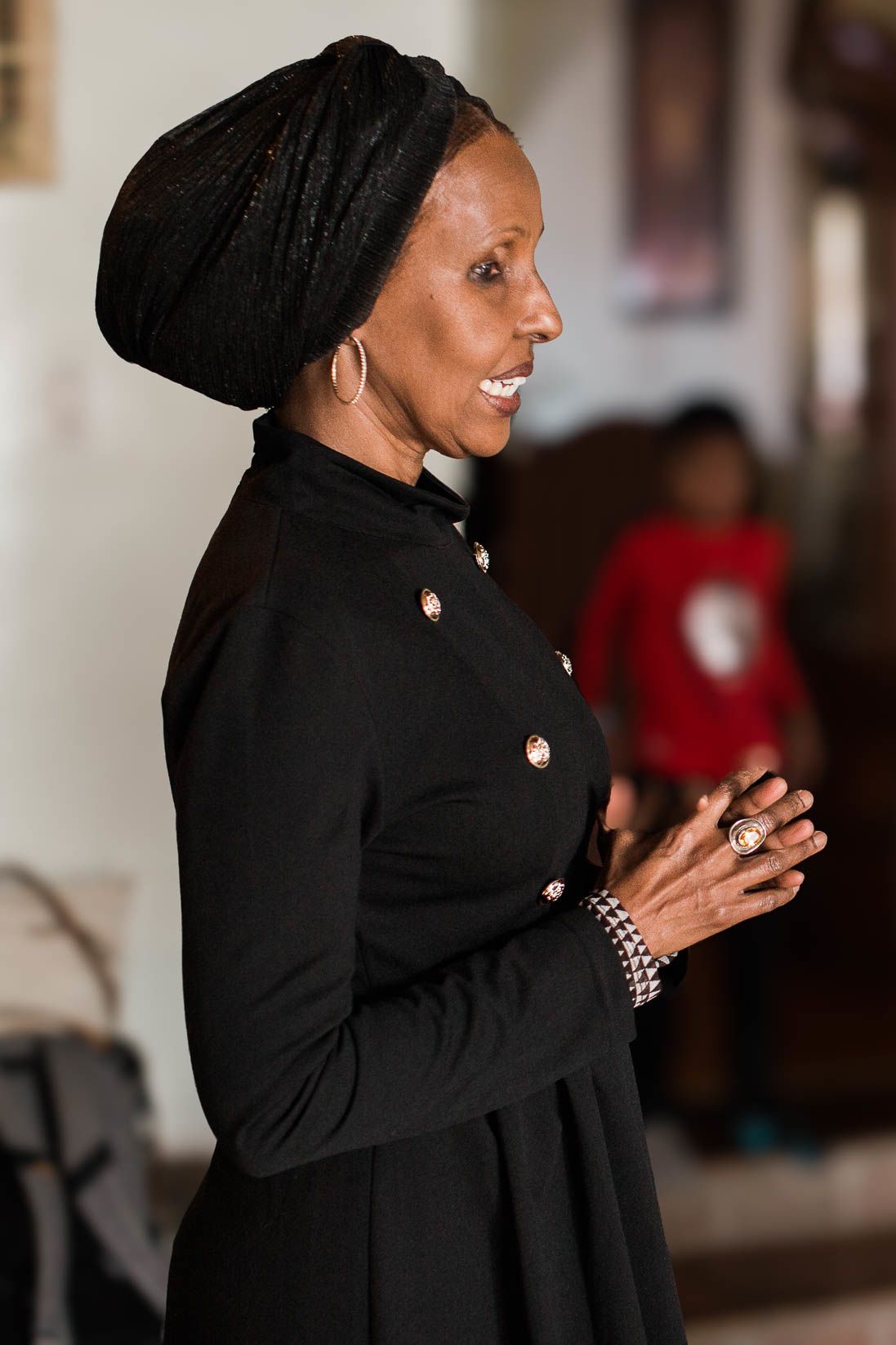
Healthy Start Program as a Microcosm of the World
The diversity of participants in Global Communities’ Healthy Start program reflects broader global trends and events, serving as a microcosm of worldwide immigration patterns and political shifts. The International Rescue Committee notes that the fall of Saigon in 1975 marked the first major wave of immigration into San Diego County followed by various ethnic groups making it their home in subsequent decades.
From the 1980s through the 1990s, refugees from Iraq, Somalia and other countries sought refuge in the area due to civil unrest in their homelands, making City Heights a hub for refugee resettlement and resources and opening the door for further immigration. In an interview with KPBS, a community member describes the area's diversity as “a cultural mash-up where Somali women in headscarves and Burmese women holding parasols stroll past Vietnamese supermarkets and Pagoda-style strip malls.” More than 30 languages and 80 dialects are spoken in the City Heights neighborhood alone.
When the Taliban assumed control of the Afghan government in 2021, San Diego once again saw an influx of refugees, profoundly impacting Global Communities’ Healthy Start program. The team swiftly acknowledged a significant rise in demand for services within the burgeoning Afghan community. Consequently, the program recruited interpreters proficient in Pashto and Dari to facilitate effective communication with Afghan participants.
“We didn't anticipate a surge of asylum seekers from Afghanistan, much like we experienced with Haiti. It wasn't initially part of our program's scope, but people began reaching out and asking for help despite language barriers,” Bain says.
This led to greater outreach to the wider Afghan community and a better understanding of how Healthy Start could help address their needs related to maternal and child health.
"We started learning about the Afghan community, including their documented challenges with the highest infant mortality rates worldwide. Here we are, a program designed to address infant mortality disparities,” Bain says.
Whether vulnerable Afghan families or another demographic new to San Diego, Healthy Start’s adaptability has been crucial to ensuring the program can proactively respond to unforeseen global developments and provide effective support to expectant families.
Operating at a grassroots level allows us to pivot and meet emerging needs effectively.
What Does the Future Look Like for the Healthy Start San Diego Program?
The future of Global Communities’ Healthy Start program is promising, having secured funding for a new cycle that ensures participants will continue to benefit from its life-changing services for another five years. With this renewed support, the program’s reach will expand to Riverside County, where the team will continue to focus on decreasing infant mortality disparities and increasing access to critical maternal health care. Additionally, Global Communities has launched Healthy Start Enhanced in San Bernadino County, creating a connected network of health services across Southern California serving diverse Black and immigrant communities.
In 2024, Global Communities combined with IntraHealth International, a longtime pioneer in solving global health challenges by focusing on health systems and the people who power them. The unified capabilities of both organizations will facilitate creating a world where crises give way to resilience and all people have the health care they need to thrive.
The documented success of the Healthy Start program and its growth exemplify how culturally congruent, community-based care can transform the lives of marginalized communities. Perinatal Navigators are demonstrating daily that health and support can pave the way to a brighter future for all.

At a time when disasters and disruptions are becoming more common and catastrophic, Global Communities, together with our local partners, equips communities with the training, tools and resources they need to recover from crises and build long-term resilience in the face of constant change.
From prevention and adaptation to positive transformation, we focus on solutions that center local voices and expand opportunities for growth, leadership and advancement.


